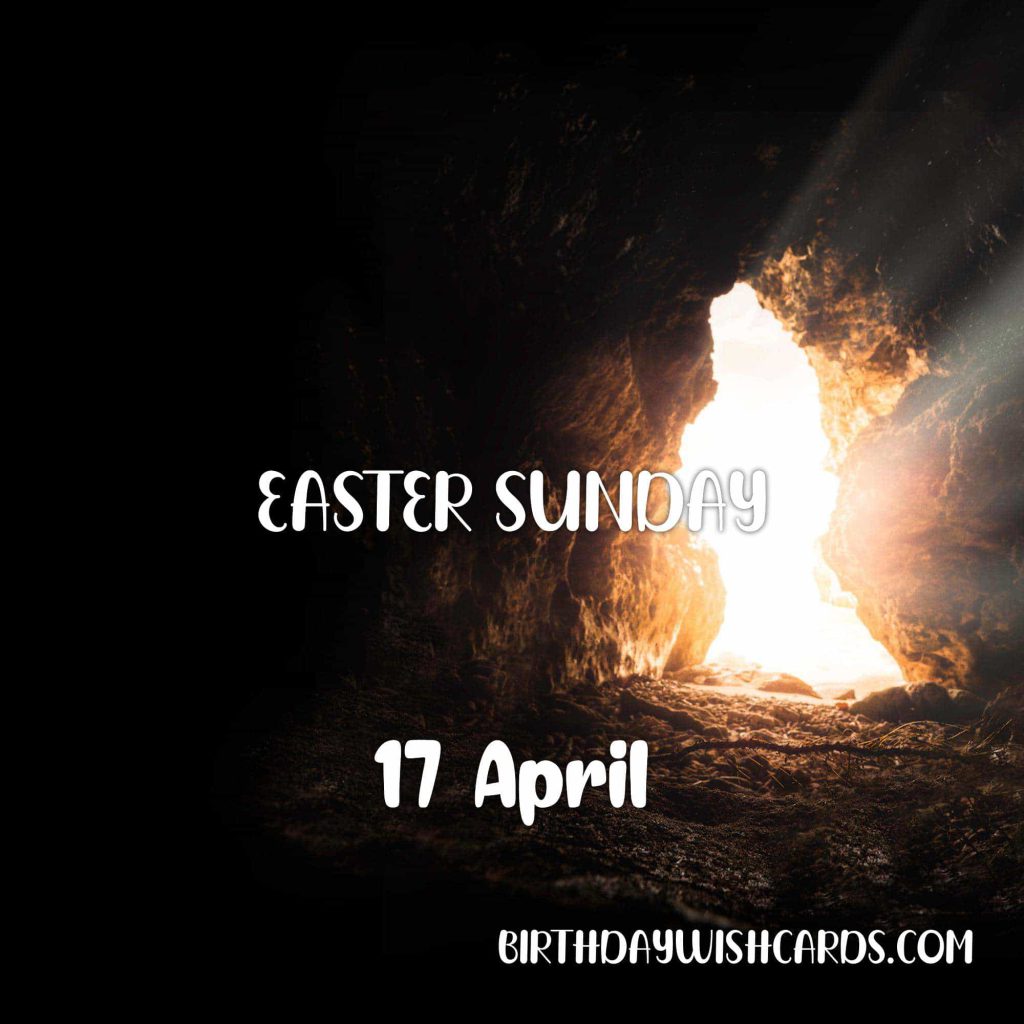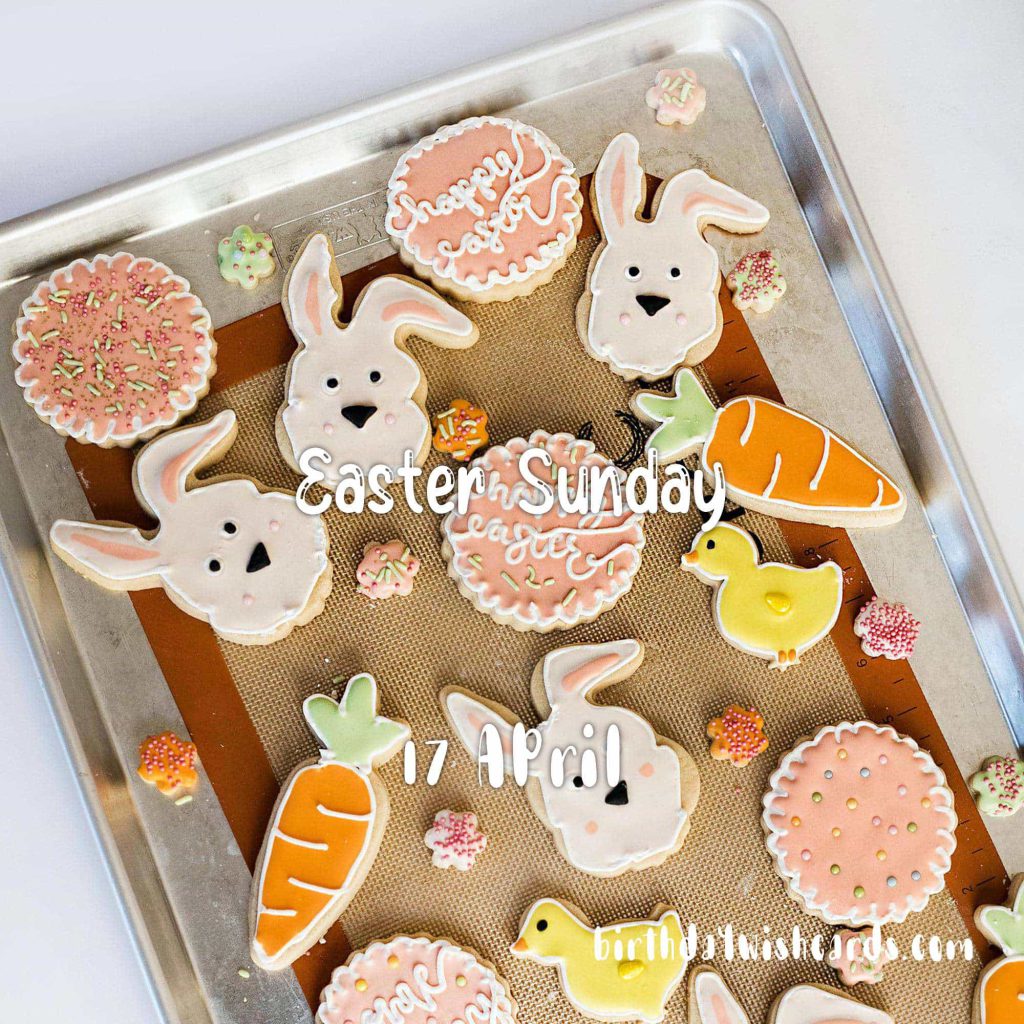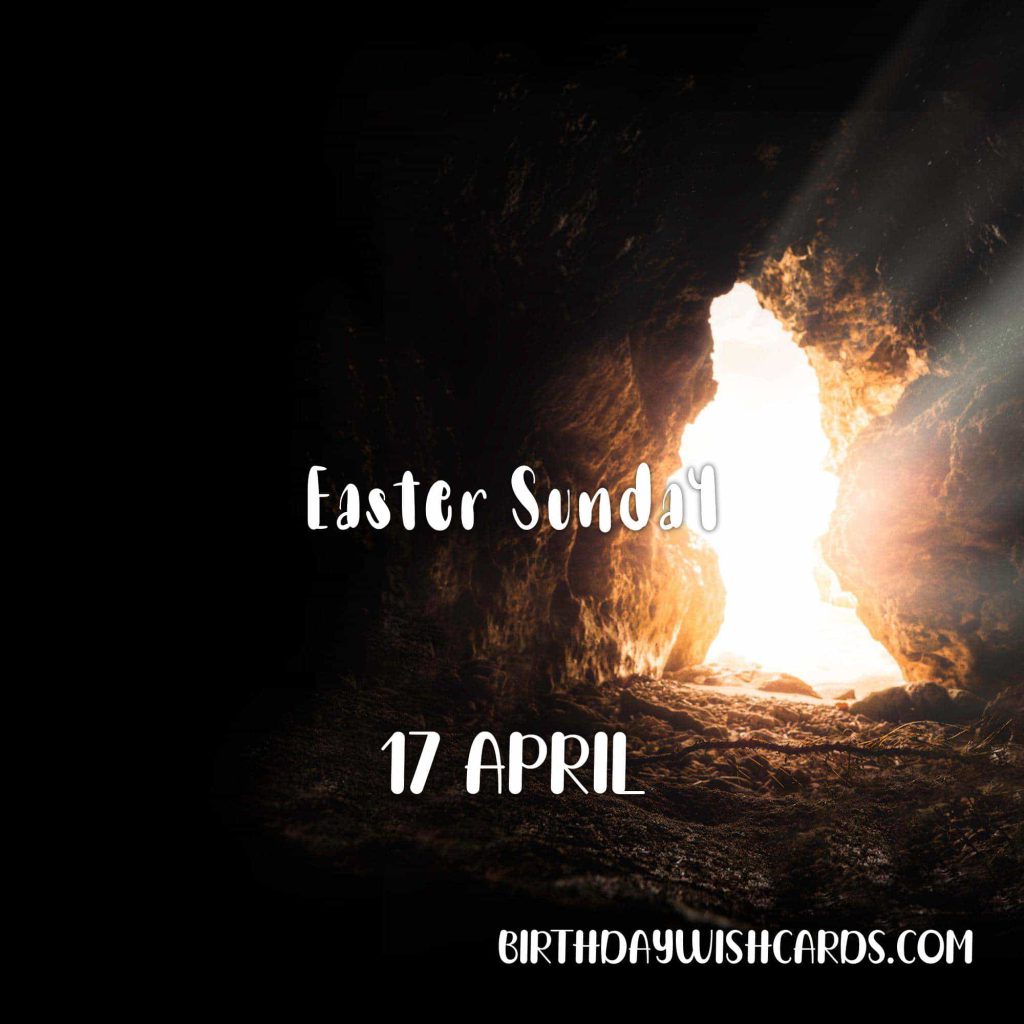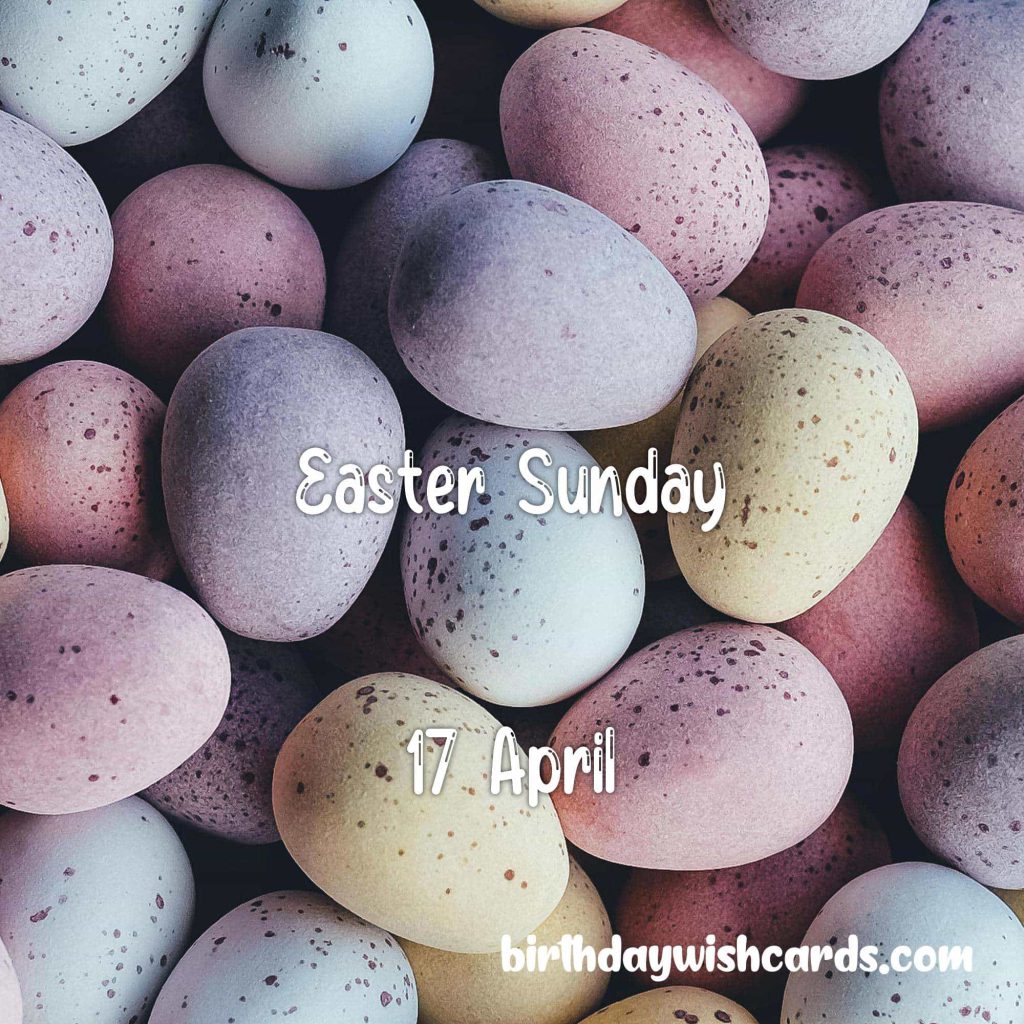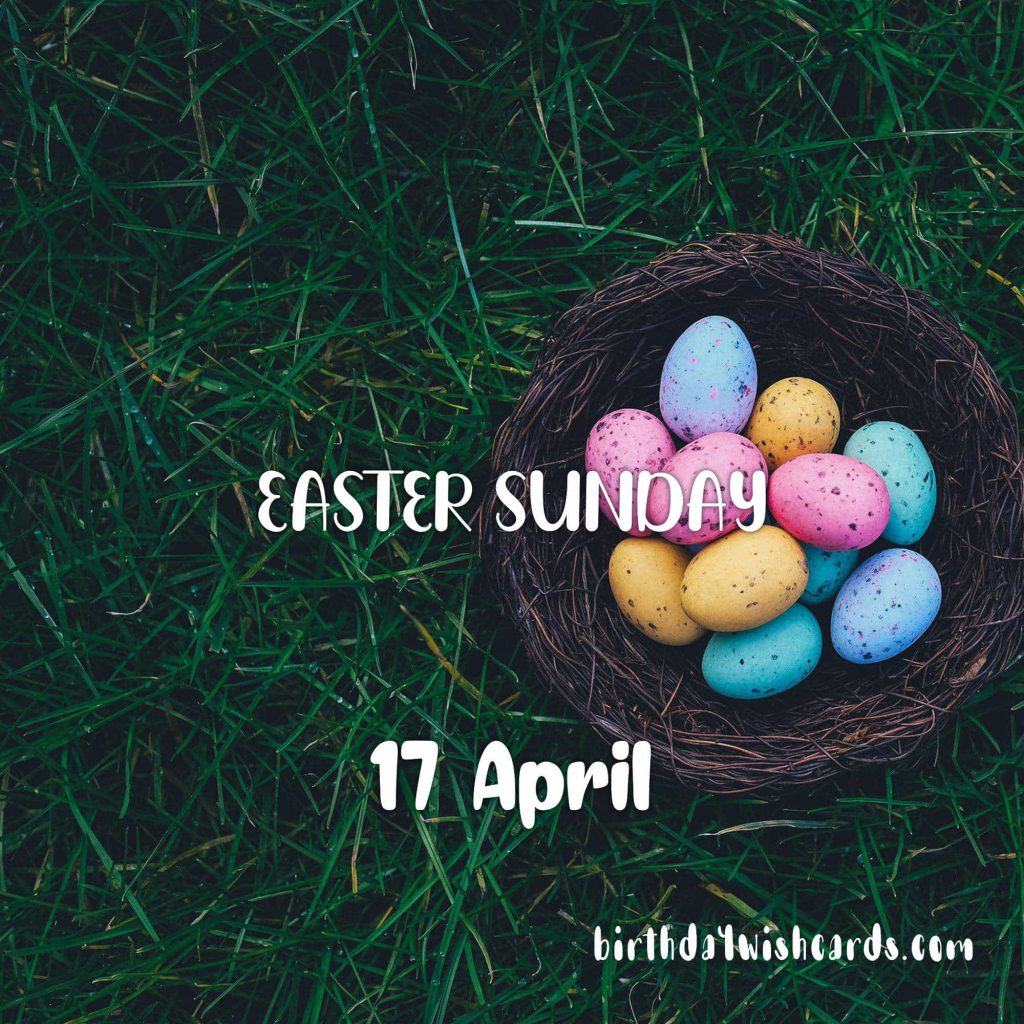
April 17: Easter Sunday – History, Traditions, and Significance
Background of Easter Sunday
Easter Sunday is one of the most important days for Christians worldwide, commemorating the resurrection of Jesus Christ as described in the New Testament. According to the Gospel of John, Mary Magdalene discovered Jesus’s tomb empty and was told by a heavenly messenger that He had risen from the dead. This event forms the cornerstone of Christian faith, symbolizing hope, renewal, and the promise of eternal life.
The celebration of Easter, however, has origins that extend beyond Christianity. Many customs associated with Easter trace back to ancient pagan spring festivals. The name “Easter” is believed to derive from Eostara, the Anglo-Saxon goddess of dawn and rebirth. Historically, the Feast of Eostara marked the renewal of the earth and the return of life after winter’s dormancy.
In early modern history, Easter sometimes faced resistance. For example, Puritans regarded Easter as a man-made tradition lacking biblical foundation and refrained from observing it. In 1647, King Charles I of England declared Easter as sacred as Sunday, but Parliament opposed his decree and abolished its official celebration, along with other church festivals, during that period.
How the Date of Easter Is Determined
The date of Easter Sunday changes each year and is based on a set of ecclesiastical rules connected to lunar cycles and the spring equinox. The Council of Nicaea in 325 CE established that Easter should be observed on the first Sunday after the first full moon following the March equinox. This calculation ensures that Easter falls after the equinox and typically after the Jewish Passover.
If the full moon falls on a Sunday, Easter is postponed by one week to avoid coinciding with Passover. In addition, Eastern Orthodox churches in countries such as Greece and Russia calculate Easter using the Julian calendar, rather than the Gregorian calendar used in the West, often resulting in different Easter dates.
Traditional Easter Celebrations and Customs
Easter traditions are rich and diverse, blending religious observance with cultural festivities. Common customs include:
- Church Services: Many Christians attend special sunrise services or Mass on Easter Sunday to celebrate the resurrection of Christ.
- Easter Eggs: Symbolizing new life and rebirth, eggs are decorated and exchanged. The Easter egg hunt, where children search for hidden eggs, is especially popular.
- Easter Bunny: A symbol of fertility and spring, the Easter Bunny is a folkloric figure said to deliver eggs and treats to children.
- Festive Meals: Families often gather for special meals featuring lamb, ham, or other traditional dishes.
Visual Celebration of Easter Sunday
The joyous spirit of Easter is beautifully captured in images that showcase festive decorations, joyful gatherings, and the holiday’s symbolic icons.
The Spiritual Meaning of Easter Sunday
Easter is more than a historical or cultural event; it carries profound spiritual significance for Christians. The resurrection of Jesus represents victory over death and the promise of eternal life. This event is central to Christian theology, affirming both the divinity of Jesus and the hope of salvation.
For many, Easter is a time of reflection, repentance, and spiritual renewal. The season emphasizes forgiveness, redemption, and the triumph of light over darkness.
Modern-Day Easter Observances
Today, Easter is celebrated around the world with a blend of religious ceremonies and joyful festivities. Communities organize parades, concerts, and family-friendly events. In many countries, Easter Monday is also a public holiday, extending the celebrations.
Schools and local organizations often host Easter egg hunts and craft activities, fostering community spirit and festive cheer. Charitable acts and outreach programs are also common during this season, reflecting the compassion and generosity at the heart of the Easter message.
Conclusion
Easter Sunday, observed on April 17 this year, remains a day of deep significance and joyful celebration. Its rich history—spanning ancient pagan traditions to profound Christian meaning—highlights enduring themes of renewal, hope, and resurrection. Whether through solemn worship or joyful customs, Easter continues to be a vibrant and meaningful occasion for people around the world.


